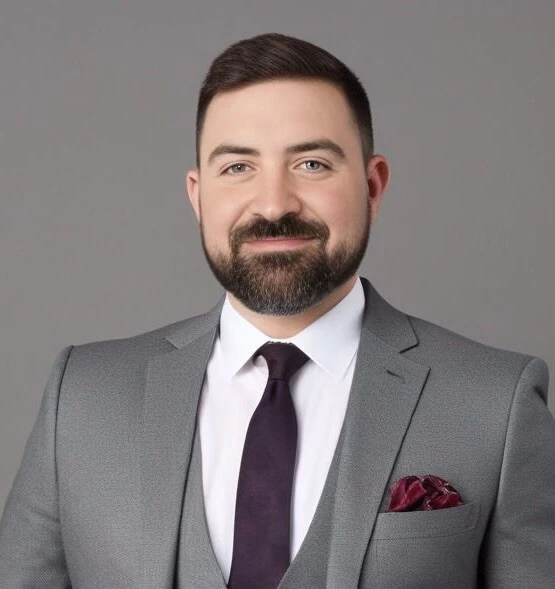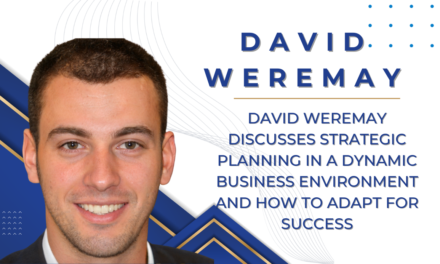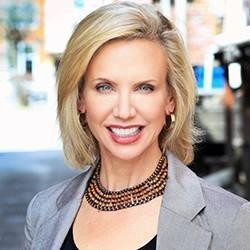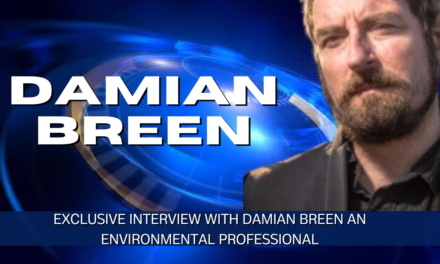Rick Saleeby is a seasoned journalist and broadcaster based in New York, known for his extensive experience in news production and sports journalism. A graduate of St. John’s University with a Bachelor of Science in Communication Arts and a minor in Business Administration, Rick began his career at News 12 Interactive, where he worked as a producer and video graphics editor. He later joined News 12 Connecticut as an Associate Producer and Sports Producer, gaining valuable experience in managing sports content and live production.
In 2004, Rick moved to FOX News Channel in New York, serving as an Associate Producer and Writer for “Studio B” and “The FOX Report” with Shepard Smith. During this time, he honed his skills in live broadcast management and news coverage. His most significant role was at CNN, where he spent 15 years from 2007 to 2022, working as a Senior Producer, Senior Copy Editor, and Head Writer for “The Lead with Jake Tapper.” Here, Rick played a crucial role in crafting the show’s voice, writing scripts, and handling breaking news coverage.
Rick’s dedication to journalistic integrity has been recognized with several prestigious awards, including multiple Peabody Awards, Emmy nominations, and the GLAAD Media Award. With over two decades in the industry, Rick Saleeby has built a reputation for his storytelling skills, adaptability, and ability to navigate the fast-paced world of broadcasting. Outside of work, he is passionate about sports, fitness, and travel, continually seeking inspiration for his storytelling endeavors.
What inspired you to pursue a career in journalism and broadcasting?
Growing up in Long Island, New York, I was always fascinated by sports and storytelling. Watching the Yankees on TV and listening to the broadcasters made me realize the power of storytelling in bringing sports to life. I knew early on that I wanted to be a part of that world, not just as a fan but as someone who could tell those stories in a way that resonated with others.
How did your time at St. John’s University shape your journey in journalism?
My experience at St. John’s University was foundational. It wasn’t just about the classes; it was the hands-on experience I gained by working at the university’s radio station and being involved in media activities. It allowed me to develop my skills in writing, reporting, and storytelling. The university’s location in New York City also exposed me to real-world experiences in a media-rich environment.
What was your most memorable experience while working at CNN?
One of my most memorable experiences at CNN was during the 2016 election coverage. The energy in the newsroom was electric, and being part of the team that handled live breaking news was both challenging and exhilarating. It was one of those moments when you realize the impact of journalism in shaping public understanding. It was intense, but it reinforced why I love this profession.
How do you handle the fast-paced nature of news broadcasting?
The key is staying organized and being adaptable. News can change in an instant, and you need to be ready to pivot at a moment’s notice. It’s important to stay calm under pressure and trust your instincts. Over the years, I’ve developed routines to manage stress, like taking a moment to breathe and refocus, which helps me stay sharp and responsive in high-pressure situations.
What role do you think ethics play in journalism today?
Ethics are the backbone of journalism. In today’s world, where misinformation can spread rapidly, it’s more important than ever to maintain integrity and accuracy. As journalists, we have a responsibility to provide truthful, balanced, and fair reporting. Upholding ethical standards is crucial for maintaining public trust, and that’s something I take very seriously.
How has the digital age changed your approach to broadcasting?
Digital media has completely transformed broadcasting. Today, it’s not just about the TV screen; it’s about reaching audiences on multiple platforms. It means adapting content to suit social media, creating engaging online stories, and being available on-demand. While this evolution can be challenging, it’s also exciting because it allows us to reach a wider audience and interact with them in real-time.
What advice would you give to aspiring journalists entering the industry?
First, be curious and never stop learning. Journalism is about asking questions and seeking the truth. Second, don’t be afraid to start small. Every experience, whether at a local paper or a small station, is valuable. And lastly, be persistent. It’s a tough industry, but if you’re passionate and dedicated, you’ll find your way.
How do you stay informed and continue growing in your field?
I’m a firm believer in continuous learning. I read a lot, not just news but also books on storytelling, history, and technology. Staying connected with peers in the industry and engaging in discussions also helps me stay current. I believe that to tell great stories, you have to be curious about the world around you.
Can you share a story that had a significant impact on you as a journalist?
Covering the Arab Spring in 2011 was incredibly impactful for me. It was a historic moment, and being part of the team that reported on it gave me a firsthand understanding of how powerful journalism can be. It was a reminder that our work can shine a light on important issues and give a voice to those who might otherwise be unheard.
What’s next for you in your career?
I’m always looking for new challenges and ways to grow as a journalist. I’m interested in exploring more long-form storytelling and documentary work, diving deeper into stories that matter and can make a difference. I believe that no matter how much technology changes, there will always be a place for authentic storytelling, and that’s where I want to continue making my mark.




